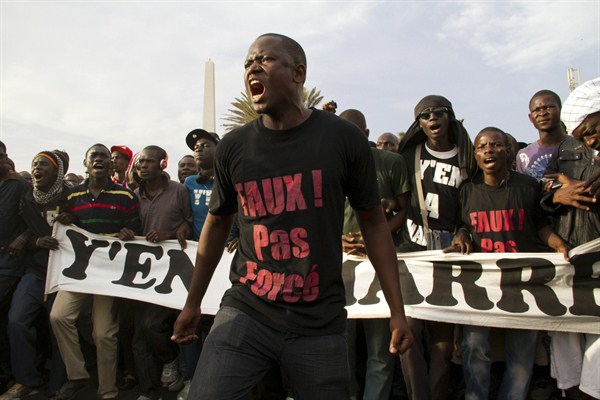Editor’s note: The following article is one of 30 that we’ve selected from our archives to celebrate World Politics Review’s 15th anniversary. You can find the full collection here.
DAKAR, Senegal—“Africa’s luck is that it has youth on its side. But we need to harness that luck,” says Senegalese rapper Keyti, his voice ringing out to the crowd of young people before him at Cheikh Anta Diop University’s outdoor basketball court.
It’s a mid-November evening in Dakar, Senegal’s capital. Hundreds of men, mostly youth, gather on plastic chairs or dangle their legs over cement ledges, gazing out onto center court, listening intently. It’s not a lineup of basketball players they’re looking at, but a collection of some of Senegal’s most well-known hip-hop artists—household names like Awadi Didier and Fou Malade, Keyti and Xuman, Fadel Barro of the Y’en a Marre citizens’ activist movement, and even members of Balai Citoyen, a hip-hop social activist duo from Burkina Faso.

